
Supporting States and Communities on Renewable Energy Siting and Permitting
Stay Connected
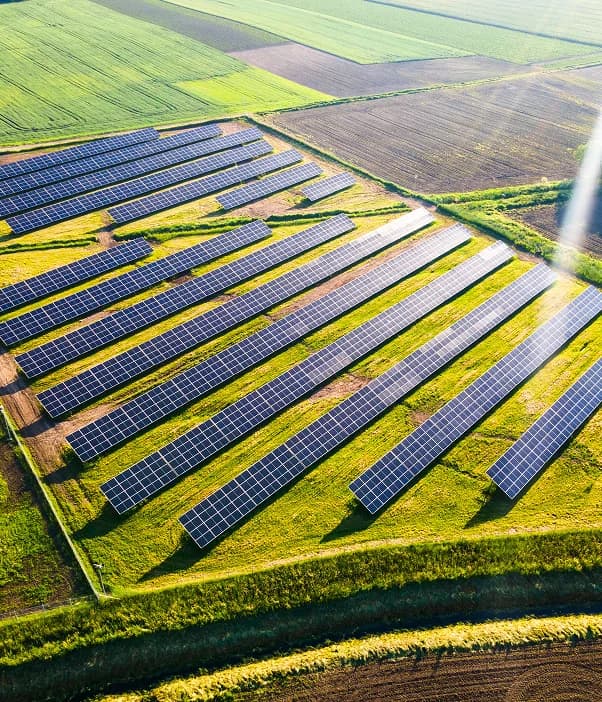
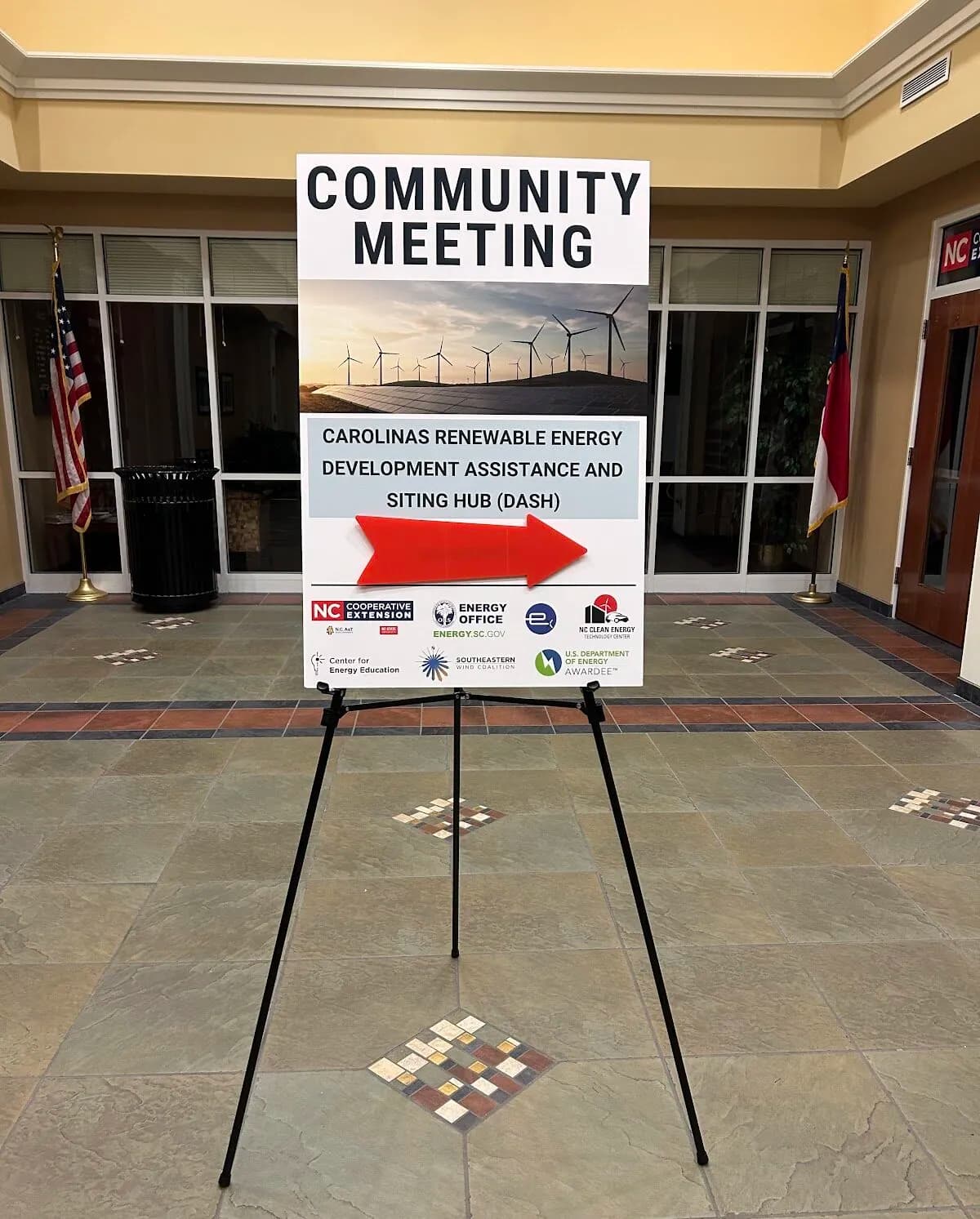
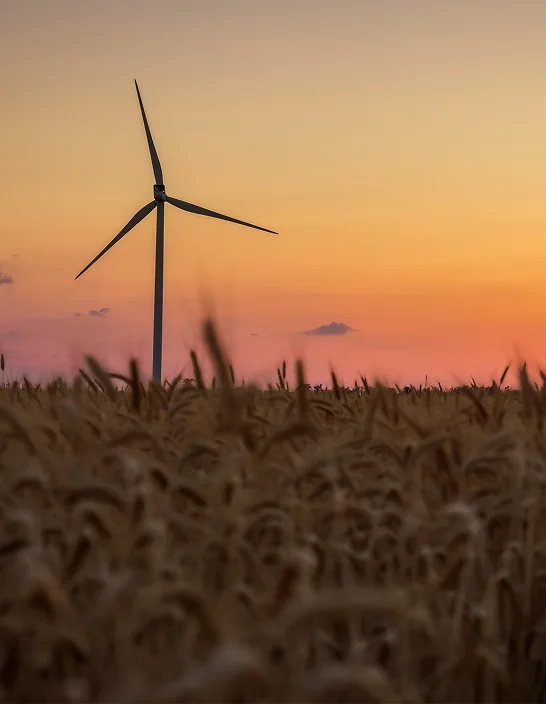
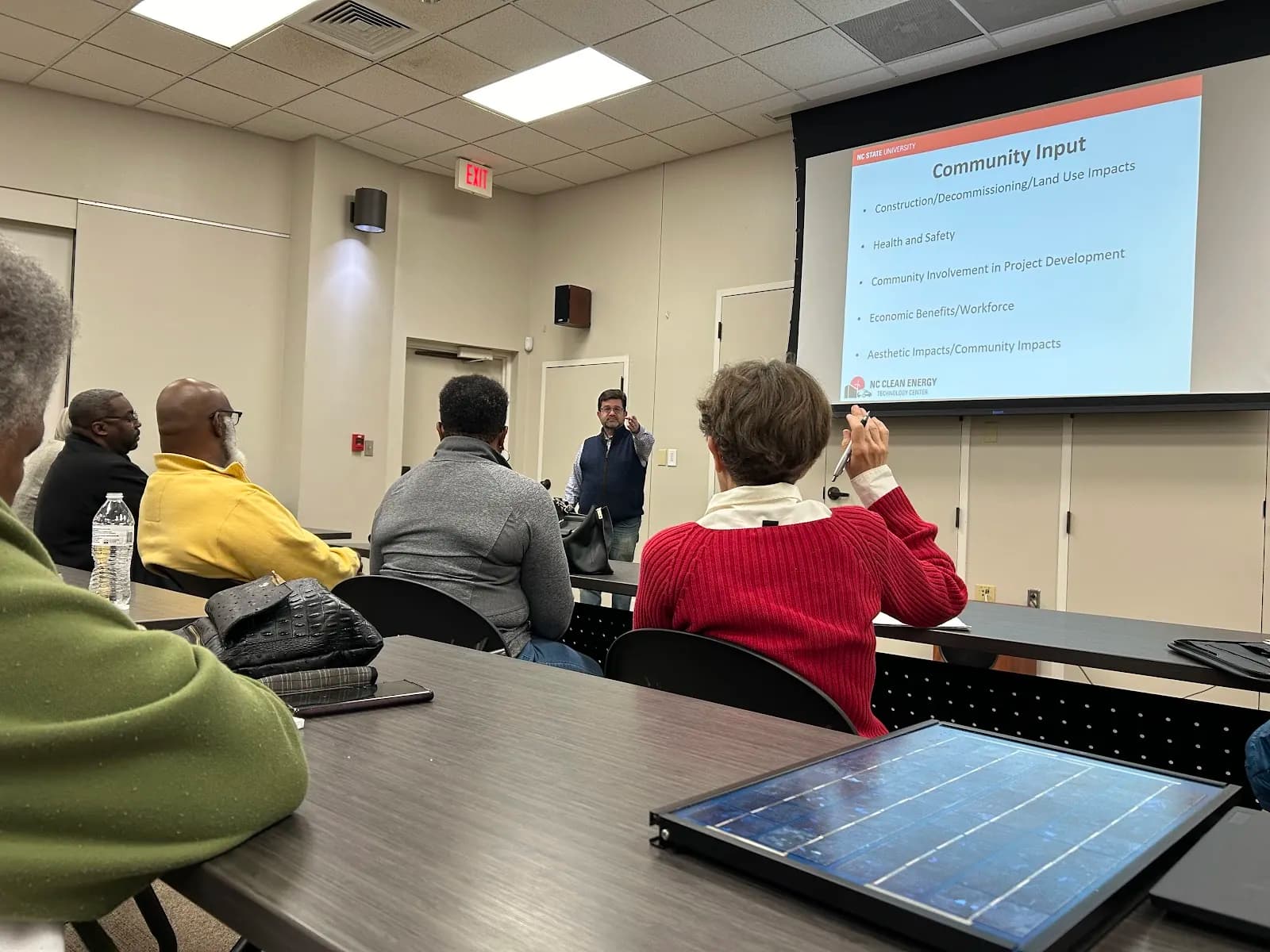
What is Carolinas DASH?
The Carolinas Development Assistance and Siting Hub (DASH) program aims to provide education and technical assistance on renewable energy siting and permitting issues to local governments and communities in North and South Carolina. This three-year U.S. Department of Energy-funded program will involve (1) surveys and community meetings to understand questions and perspectives about renewable energy development; (2) creation of resources to support local governments on siting and permitting issues, including model ordinances and a database of existing North and South Carolina renewable energy ordinances; and (3) educational workshops and direct technical assistance for local governments and communities.
Learn more
Resources
VIEW ALL RESOURCES
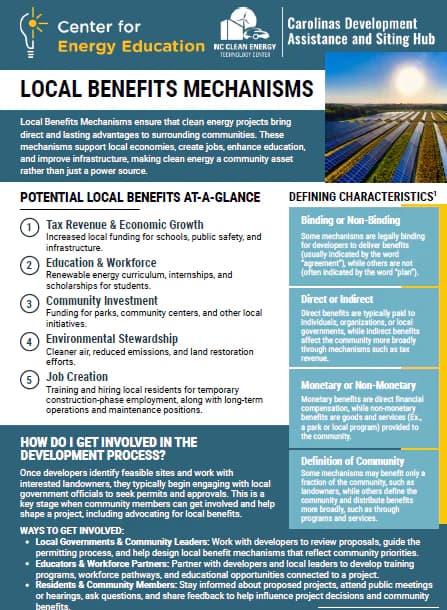
Local Benefits Mechanisms Guide
This local benefits mechanisms guide from the Carolinas DASH and Center for Energy Education is a resource that helps communities and local governments understand and negotiate benefits from clean energy projects. It explains agreement types, community engagement strategies, and ways projects can deliver jobs, funding, infrastructure, and other local benefits.
LEARN MORE
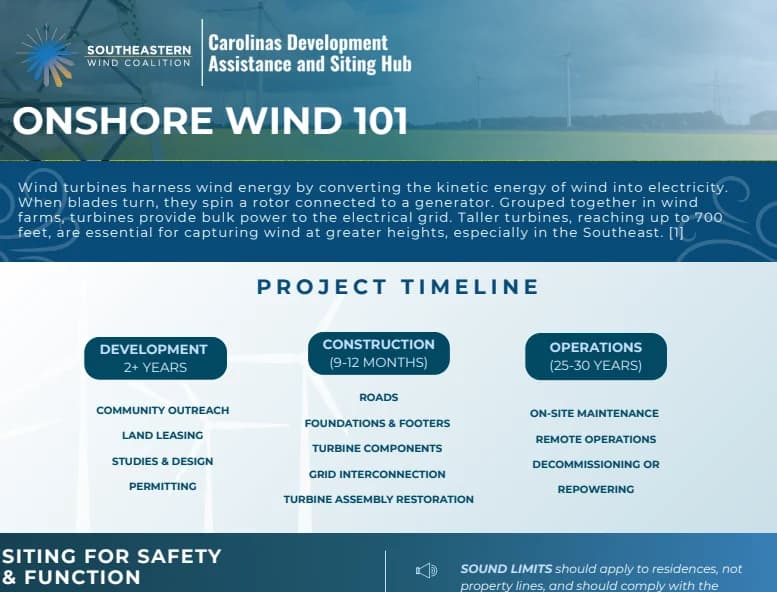
Onshore Wind 101
Summary of onshore wind energy basics developed by the Southeastern Wind Coalition, including a primer on how wind turbines work and the key siting, permitting, environmental, and decommissioning practices that guide onshore wind projects.
LEARN MORE
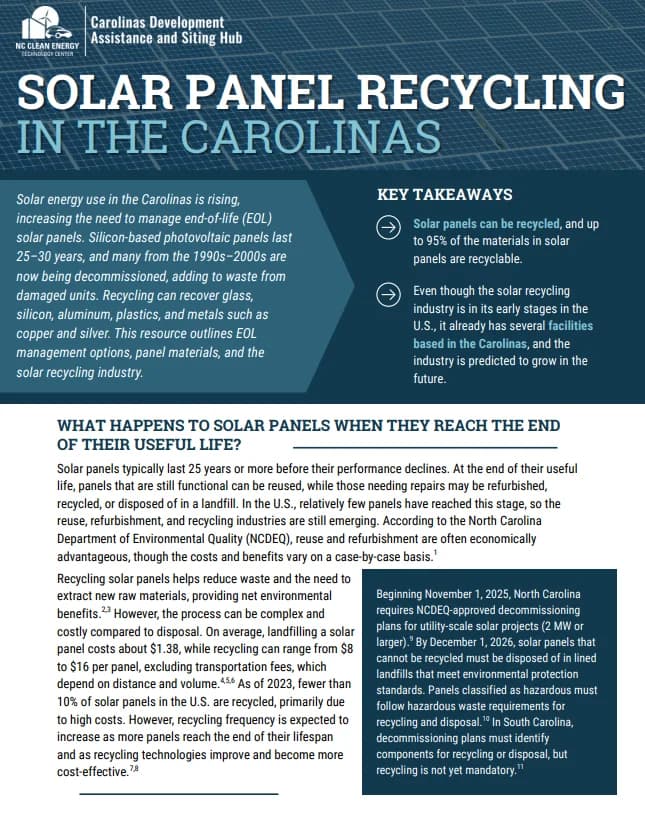
Solar Panel Recycling in the Carolinas
This fact sheet from the Carolinas DASH provides an overview of end-of-life management for solar panels—including reuse, refurbishment, recycling options, materials recovery (up to ~95 %), industry status in the Carolinas, and evolving regulatory requirements.
LEARN MORE
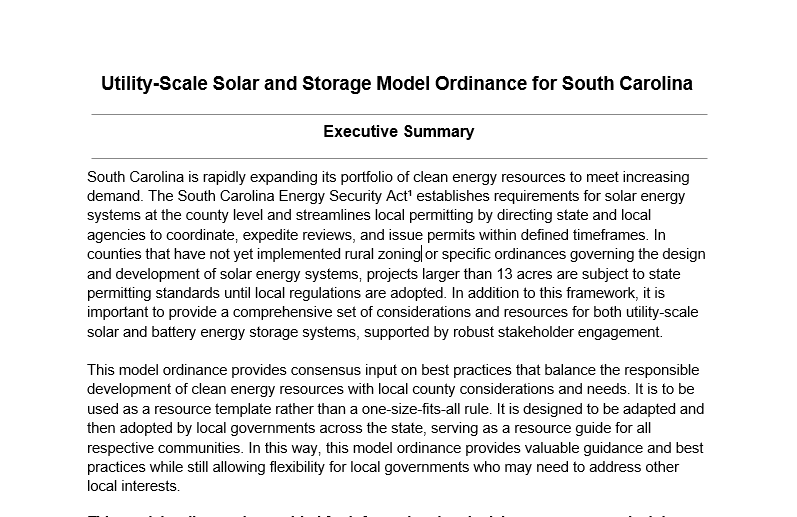
South Carolina Utility Scale Solar and Storage Model Ordinance
Model ordinance for utility-scale solar and storage development in South Carolina to guide counties in responsibly siting, permitting, and decommissioning projects.
LEARN MORE
Upcoming Events
VIEW ALL EVENTS
State Energy Conference Agrivoltaics Pre-Conference Tour Session #2
Explore the potential of agrivoltaics and the power of partnerships at NC State’s Lake Wheeler Field Lab Agrivoltaics Training Site. This guided tour is designed for attendees interested in how agrivoltaics are tested, taught, and scaled in practice, and who want to help shape what these systems could become in...
Apr
27

